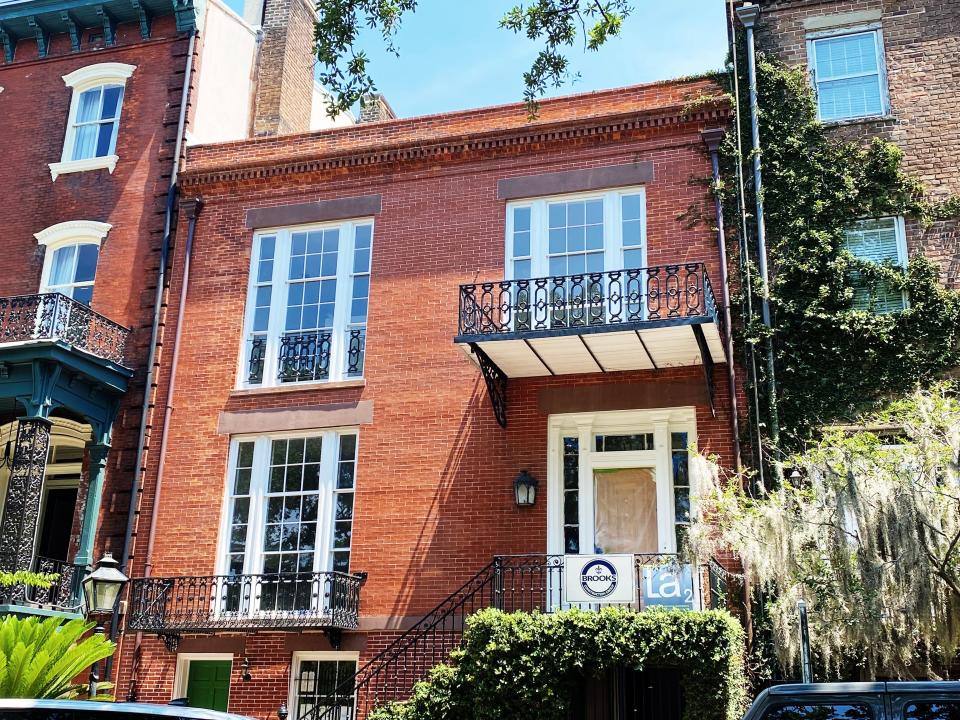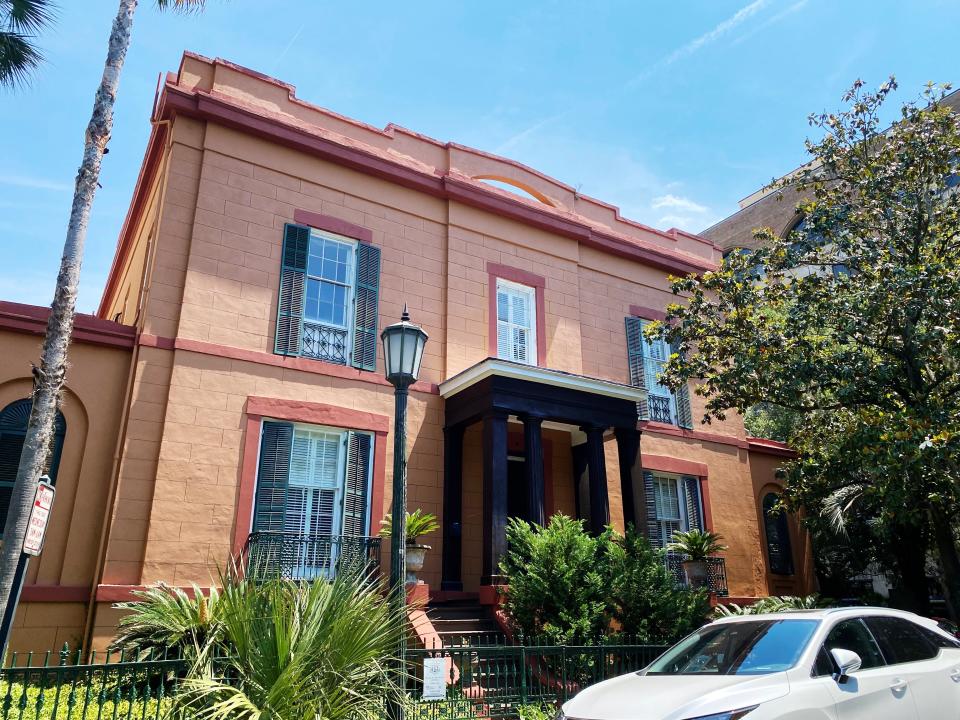Boo Business: 2 Savannah ghost stories serve as cautionary tales of mental health
May is Mental Health Awareness Month, and the more ghost stories I hear about Savannah, the more I can’t help but think that so many wouldn’t exist if people had just gone to see a therapist.
The sad tale of poet Conrad Aiken’s father killing his mother because he thought she was conspiring to institutionalize him is a great example. Some versions of the story told on ghost tours claim that Dr. William Aiken was driven mad by his wife Anna’s partying, but I haven’t found any evidence to back that up.
What I have found is that Dr. Aiken had some sort of a nervous breakdown when he first started his medical practice in New York in the late 1800s. It was recommended he move south to Savannah because the pace of life here would be kinder to his mental health.
Boo Business: Little Gracie Watson is a small figure with a big story in Bonaventure Cemetery
Other recent Boo Business: William Kehoe, the Irish legend behind the famed Savannah ghost story
Also: Laurel Grove South Cemetery holds tales of famed figures in Savannah history
And: Legacy of racing, graves outside downtown Savannah could mean haunted past

Mental health issues don’t just magically go away though.
From what I’ve read, Dr. Aiken would work till his mental health issues started to show, would take a vacation, and then start working again. This was the cycle for much of his son Conrad’s young life. Some people say Dr. Aiken had some form of schizophrenia, but it’s really hard to diagnose based on a few examples of his symptoms. What we do know is that he had a fear of mental health institutions and believed his wife was trying to send him to one. To be fair, mental health hospitals have come a long way since the late 1800s and early 1900s. They were kind of scary. But if Dr. Aiken had had access to proper mental health care, he could have figured out what was setting off his paranoia, dealt with it, and probably wouldn’t have killed his wife and then himself.
Another example is Matilda Sorrel. While there are a lot of historical inaccuracies perpetuated about what happened at the Sorrel-Weed House on Madison Square, the fact that Matilda Sorrel is buried in an unmarked plot in Laurel Grove North Cemetery and not with her husband in the family vault is a strong context clue that she did actually commit suicide.
People like to say she was driven mad by her husband’s infidelity with an enslaved woman in the household. Her husband, the infamous Francis Sorrel, could certainly have been taking advantage of enslaved women. But an archeological dig report from Armstrong State University in 2017 cited letters written by people who knew the Sorrels that elude to Matilda having some form of depression.

Mary C. Jones is quoted as writing, “I heard some time since that she was subject to great mental depressions.”
Depression is a tricky thing. It can be the result of the chemistry in your brain changing because of things like puberty and pregnancy, the result of trauma, or any other number of things.
We know that Matilda lost her sister Lucinda, Frances’ first wife, to Yellow Fever and was married to Francis soon after. She also started having children quickly and in rapid succession. Depression from a sudden loss or postpartum depression can certainly get worse if left untreated. If Matilda had been able to see a therapist and even try medication, her story may have had a happier ending.
Our mental health is important. It doesn’t just affect us but also our friends, our family, and our coworkers. The therapists, medication, and other treatment options we have now are light years ahead of what was available during Dr. William Aiken or Matilda Sorrel’s lifetimes.
Anne Kuhlke- Lee, LPC , who offers professional counseling services here in Savannah said, “Therapy can be helpful for everyone. Getting started is hard since it requires you to be vulnerable. It is a therapist’s job to offer you a confidential, judgment-free, and safe space to bring your concern, and we know that coming in for the first time brings up some anxiety. It can help to ask in advance what the first session will involve.”
If you’re struggling, you don’t have to struggle alone. While ghost stories are a lot of fun to tell, you don’t want to become one.
Enocha Edenfield is no stranger to Savannah ghosts. You can find more of her ghost explorations on YouTube and TikTok.
This article originally appeared on Savannah Morning News: Savannah GA ghost stories: Conrad Aiken Home, Sorrel Weed House

